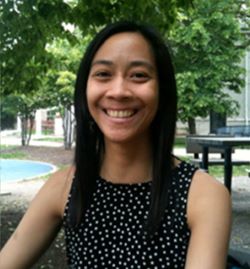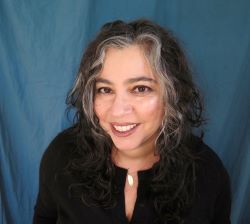Free and Open to the Public
Friday, September 9th

“Polarization, Poetry, Prose: Why Our Work Matters Now,” a Department Panel featuring Professors Walt Hunter, Kim Emmons, William Marling. Guilford Parlor. 3:15 to 4:15 p.m.
Our collective work with books, words, and sentences happens in a country and a world marked by deep divisions and differences that can feel irreconcilable. As the new year kicks off and we return with excitement to the classroom, three CWRU English professors take a moment to reflect on why our work matters now.
Friday, September 16th
Cleveland Book Week, no colloquium.
Thursday-Friday, September 22nd–23rd: Jordan Castro’s visit to the Department

Thursday, September 22nd
“Stretching Time,” Workshop. Bellflower Hall, Room 102. 4:00 to 5:00 p.m. Only 25 Participants/ Must pre-register by emailing writershouse@case.edu. Sponsored by Writers House.
Many novels take place over the course of just one day, a few hours, or less. They do this by “stretching time.” In this workshop, we’ll learn how to use time dilation as a narrative technique to achieve intensity; include digressions, rants, and tangents; explore unexpected connections in your work; and have fun. Students will be provided with passages to read in class for discussion, a writing prompt to complete during the workshop.
Friday, September 23rd
A Fiction Reading by Jordan Castro. Guilford Parlor. 3:15 to 4:30 p.m.
Jordan Castro is the author of The Novelist (Soft Skull, 2022), and two poetry books. He was the editor of New York Tyrant magazine, and lives in New Haven, CT.
Friday, September 30th

“Apprehending Terror: Norma Cole as Poet and Translator from the French,” a Lecture by Teresa Villa-Ignacio. Guilford Parlor. 3:15 to 4:15 p.m.
In Crosscut Universe: Writing on Writing From France (2000), Norma Cole observes: “Circumstances and events (such as two world wars and the Algerian struggle for independence), from detail to detail, date to date, are not backdrop but determining facts appearing at different local lengths, from naming to silence, testing the orders of apprehension as well as of writing.” This talk explores how facts, apprehension, and their complex relationship have shaped, on one hand, experimental French poetry since the 1960s as viewed through the lens of several of Cole’s major translations, and on the other, Cole’s own poetics. While Cole uses “apprehension” in its most common sense, to seize or grasp with the intellect, an activity of perceiving, learning, or understanding, it can also signify fear or dread. Within the orders of apprehension, then, to learn facts is to become afraid, to understand facts is to dread them: factual knowledge is terror. Since temporarily losing its self-sovereignty and collaborating with the Nazis in World War II, and permanently losing its most precious colony in the Algerian War of Independence, French consciousness has itself been terrorized by the human potential to perpetrate terror to nationalist ends. The texts Cole has translated value formal innovation as a poetic response to historical change, and seek out modes of living with the history and facticity of terror. Cole’s own poetics evinces similar commitments, informed at once by her decades-long relationship to French poetry and by her situatedness in North America and on our increasingly globalized planet.
Teresa Villa-Ignacio is Associate Professor of French Translation at Kent State University. Her essays, which have appeared in the PMLA, Yale French Studies, Contemporary Literature, MLN, and the Journal of North African Literature, explore contemporary poetic and translational interventions in ethical philosophy, postcolonial liberation movements, and social justice activism. She is the co-editor of Souffles-Anfas: A Critical Anthology from the Moroccan Journal of Culture and Politics (Stanford University Press, 2016) and Traduire le Maghreb/Translating the Maghreb, a special issue of Expressions Maghrébines (Summer 2016), and the co-translator of the Algerian writer Hocine Tandajoui’s Clamor (Litmus Press, 2021). At present she is completing a book manuscript entitled “Translational Poethics: Postlyric French-American Communities Since World War II” and translating Anne-Marie Albiach’s posthumous novel La Mezzanine.
Co-sponsored with the Department of Modern Languages and Literatures.
Friday, October 7th

“Looking into Elizabeth Bishop,” a Lecture by Johanna Winant. Bellflower Hall, Room 102. 3:15 to 4:15 p.m.
Elizabeth Bishop is celebrated for her descriptions; this talk recasts her “famous eye” not as sight but as attempts at insight, and specifically as the kind of reasoning that philosophy calls inference to the best explanation. We can then see that she’s attending to how things look in order to tell us how they work and what the criteria are for reasoning successfully.
Johanna Winant is assistant professor of English at West Virginia University. She is completing a book titled Lyric Logic: Modern American Poetry and Reasoning. Her writing appears in JML,Poetics Today,Paideuma,James Joyce Quarterly, Post45 Contemporaries, Slate,and elsewhere.
Friday, October 14th

“On the James Joyce Collection at Buffalo,” a Lecture by Jim Maynard. Guilford Parlor. 3:15 to 4:15 p.m.
The University at Buffalo Poetry Collection is the library of record for 20th– and 21st-century poetry in English and houses the UB James Joyce Collection, the world’s largest and most comprehensive collection of manuscripts and other materials by and about the renowned Irish author. This talk by Curator James Maynard provides an introduction to the Poetry Collection with a special focus on the history and holdings of the Buffalo Joyce Collection. Given that 2022 is the 100th anniversary of Ulysses, topics will include how the collection first made its way to Buffalo more than 70 years ago and our plans for the future of the UB James Joyce Collection.
James Maynard is Curator of the Poetry Collection of the University Libraries, University at Buffalo, The State University of New York. He has published widely on and edited a number of collections relating to the poet Robert Duncan, including Ground Work: Before the War/In the Dark (2006), (Re:)Working the Ground: Essays on the Late Writings of Robert Duncan (2011), Robert Duncan and the Pragmatist Sublime (2018), and No Hierarchy of the Lovely: Ten Uncollected Essays and Other Prose 1939–1981 (2020). His edition of Robert Duncan: Collected Essays and Other Prose (2014) received the Poetry Foundation’s Pegasus Award for Poetry Criticism. In 2009 he helped organize the exhibition Discovering James Joyce: The University at Buffalo Collection and edited the exhibition catalogue of the same title. He was a 2020-2021 Mid-American Conference Academic Leadership Development Program Fellow and a recipient of the 2021 SUNY Chancellor’s Award for Excellence in Professional Service. https://library.buffalo.edu/staff/jmaynard
Co-sponsored with Kelvin Smith Library Special Collections.
Friday, October 28th: Andrew Zawacki’s visit to the Department

“Tanka Walking,” A Workshop with Andrew Zawacki. Bellflower Hall, Room 102. 11:00 a.m. to 12:00 p.m. Only 25 Participants/ Must pre-register by emailing writershouse@case.edu. Co-sponsored with the Cleveland Institute of Art and Writers House.
For this workshop, participants will set out on a walk (or several) and write about (if not during) walking. Students will also read brief selections from L.A poet Harryette Mullen’s Urban Tumbleweed: Notes from a Tanka Diary, so that when writing about their walk, they can record their reflections and observations, ideas and associations, using Mullen’s tanka form—a three-line poem with a strict syllable count. Once we’re gathered together as a workshop, then, we will discuss these exercises and offer suggestions for revision.
“These Late Eclipses / The Strickenfield Images,” a Lecture by Andrew Zawacki. Guilford Parlor. 3:15 to 4:15 p.m.
Andrew Zawacki is the author of five poetry books: Unsun : f/11 (Coach House, 2019), Videotape (Counterpath, 2013), Petals of Zero Petals of One (Talisman House, 2009), Anabranch (Wesleyan, 2004), and By Reason of Breakings (Georgia, 2002). His poems have appeared in The New Yorker, The New Republic, The Nation, and other international journals, as well as the anthologies The Eloquent Poem, Legitimate Dangers: American Poets of the New Century, Walt Whitman hom(m)age, The Iowa Anthology of New American Poetries, and Great American Prose Poems: From Poe to the Present. In addition, he has published four books in France. His translation of Sébastien Smirou’s My Lorenzo received a French Voices Grant, and his translation of Smirou’s See About earned an NEA Translation Fellowship and a fellowship from the Centre National du Livre. A former fellow of the Slovenian Writers’ Association, he edited Afterwards: Slovenian Writing 1945-1995 and edited and co-translated Aleš Debeljak’s Without Anesthesia: New and Selected Poems. Coeditor of the international journal Verse from 1995 through 2019, he coedited The Verse Book of Interviews as well as Gustaf Sobin’s collected poems. A 2016 Howard Foundation Fellow in Poetry, he is Distinguished Research Professor of English at the University of Georgia.
Friday, November 4th

A Poetry Reading by Divya Victor. Clark 309. 3:15 to 4:15 p.m.
Divya Victor is the author of CURB from Nightboat Books. CURB is the winner of the 2022 PEN America Open Book Award and the winner of the 2022 Kingsley Tufts Poetry Award. It was also a finalist for the 2022 CLMP Firecracker Award (Poetry). She is also the author of KITH (Fence Books/ Book*hug); Scheingleichheit: Drei Essays (Merve Verlag, trans. Lena Schmidt); NATURAL SUBJECTS (Trembling Pillow), UNSUB (Insert Blanc), THINGS TO DO WITH YOUR MOUTH (Les Figues). Her work has been collected in numerous venues, including BOMB, the New Museum’s The Animated Reader, Crux: Journal of Conceptual Writing, The Best American Experimental Writing, POETRY, The Yale Review, American Poetry Review, and boundary2.
Her work has been translated into French, German, Spanish, and Czech. She has been a Mark Diamond Research Fellow at the U.S Holocaust Memorial Museum, a Riverrun Fellow at the Archive for New Poetry at University of California San Diego, and a Writer in Residence at the Los Angeles Contemporary Exhibition (L.A.C.E.). Her work has been performed or installed at the Museum of Contemporary Art (MoCA) Los Angeles, The National Gallery of Singapore, the Los Angeles Contemporary Exhibition (L.A.C.E.) and the Museum of Modern Art (MoMA).
She has been an editor at Jacket2 (United States), Ethos Books (Singapore), Invisible Publishing (Canada) and Book*hug Press (Canada). She is currently an Associate Professor of English and Writing at Michigan State University, where she is the Director of the Creative Writing Program.
Supported by the Helen Buchman Sharnoff Endowed Fund for Poetry. (Photo by Hannah Ensor )
Friday, November 11th

A Poetry Reading with Robin Beth Schaer. Guilford Parlor. 3:15 to 4:15 p.m.
Robin Beth Schaer is a poet and essayist whose research and teaching interests include hybrid forms, contemporary poetry, environmental writing, documentary poetics, gender & sexuality studies, global literature, and Jewish studies. She is the author of the poetry collection Shipbreaking (Anhinga 2015) and a work in progress on art and atrocity. Her recent awards include the Creative Capital Award Shortlist in 2022, a Creative Writing Fellowship from The National Endowment for the Arts in 2021, and an Ohio Arts Council Individual Excellence Award in 2020. She has received fellowships from Yaddo, MacDowell Colony, Djerassi Resident Artists Program, Saltonstall Foundation, Vermont Studio Center, and Virginia Center for the Creative Arts. Her work has appeared in Tin House, Paris Review,and Guernica, among others. Schaer was educated at Colgate University and Columbia University’s School of the Arts. She has taught writing in New York, New Jersey, and Ohio, and she worked as a deckhand aboard the Tall Ship Bounty, a 180-foot ship lost in Hurricane Sandy.
Friday, November 18th

“Wayzgoose at the Writers House: A Fall Showcase of Our Letterpress Offerings.” Bellflower Hall, First Floor. 3:15 to 4:15 p.m.
April Baker-Bell’s visit to the Department–Friday, December 2nd

“From Theory to Praxis: Implementing Linguistic Justice in the Classroom,” a Workshop with April Baker-Bell. Location TBA. 10:00 to 11:30. Only 25 Participants/ Must pre-register by emailing writershouse@case.edu.
In this workshop, participants will have an opportunity to engage in more intimate conversations about Anti-Black Linguistic Racism and how they can implement Antiracist Language Pedagogies in their respective courses. Participants will also have opportunities to ask specific questions about their teaching philosophies of language, language policies, curriculum, practices, syllabi, writing assignments, etc. Baker-Bell will share sample syllabi, assignments, and activities.
“Linguistic Justice: Black Language, Literacy, Identity, and Pedagogy,” the Sadar Lecture by April Baker-Bell. Location TBA. 3:15 to 4:15 p.m. Reception following.
In this talk, Dr. April Baker-Bell will discuss how anti-Black linguistic racism and white linguistic supremacy get normalized in teacher attitudes, curriculum and instruction, pedagogical approaches, disciplinary discourses, and research, and she will discuss the impact these decisions have on Black students’ language education and their linguistic, racial, and intellectual identities. Dr. Baker-Bell will introduce a new way forward through Antiracist Black Language Pedagogy, a pedagogical approach that intentionally and unapologetically places Black Language at the center to critically interrogate white linguistic hegemony and anti-Black linguistic racism.
April Baker-Bell is an award-winning transdisciplinary teacher-researcher-activist and associate professor of language, literacy, and English education in the Department of English and Department of African American and African Studies at Michigan State University. Baker-Bell is an international leader in conversations on Black Language education, and her research interrogates the intersections of Black Language and literacies, anti-Black racism, and antiracist pedagogies. Her award-winning book, Linguistic Justice: Black Language, Literacy, Identity, and Pedagogy, brings together theory, research, and practice to dismantle Anti-Black Linguistic Racism (a term Baker-Bell coined) and white linguistic supremacy. Baker-Bell’s latest research project involves collaborating with healthcare scholars and researchers to develop, implement and study antiracist medical curriculum interventions that support medical professionals with developing an antiracist praxis for confronting and reducing racial bias and anti-Black racism in medical and healthcare institutions. Baker-Bell is the recipient of many awards and fellowships, including the 2021 Coalition for Community Writing Outstanding Book Award, the 2021 Andrew W. Mellon Foundation’s New Directions Fellowship, the 2021 Michigan State University’s Community Engagement Scholarship Award and the 2021 Distinguished Partnership Award for Community-Engaged Creative Activity, the 2020 NCTE George Orwell Award for Distinguished Contribution to Honesty and Clarity in Public Language, the 2020 Theory Into Practice Article of the Year Award, the 2019 Michigan State University Alumni Award for Innovation & Leadership in Teaching and Learning, and the 2018 AERA Language and Social Processes Early Career Scholar Award.
This is the Edward S. Sadar, MD, and Melinda Melton Sadar Lecture in Writing Across the Disciplines
Friday, December 9th
The MacIntyre Event. Guilford Parlor. 3:15 to 4:15 p.m.
